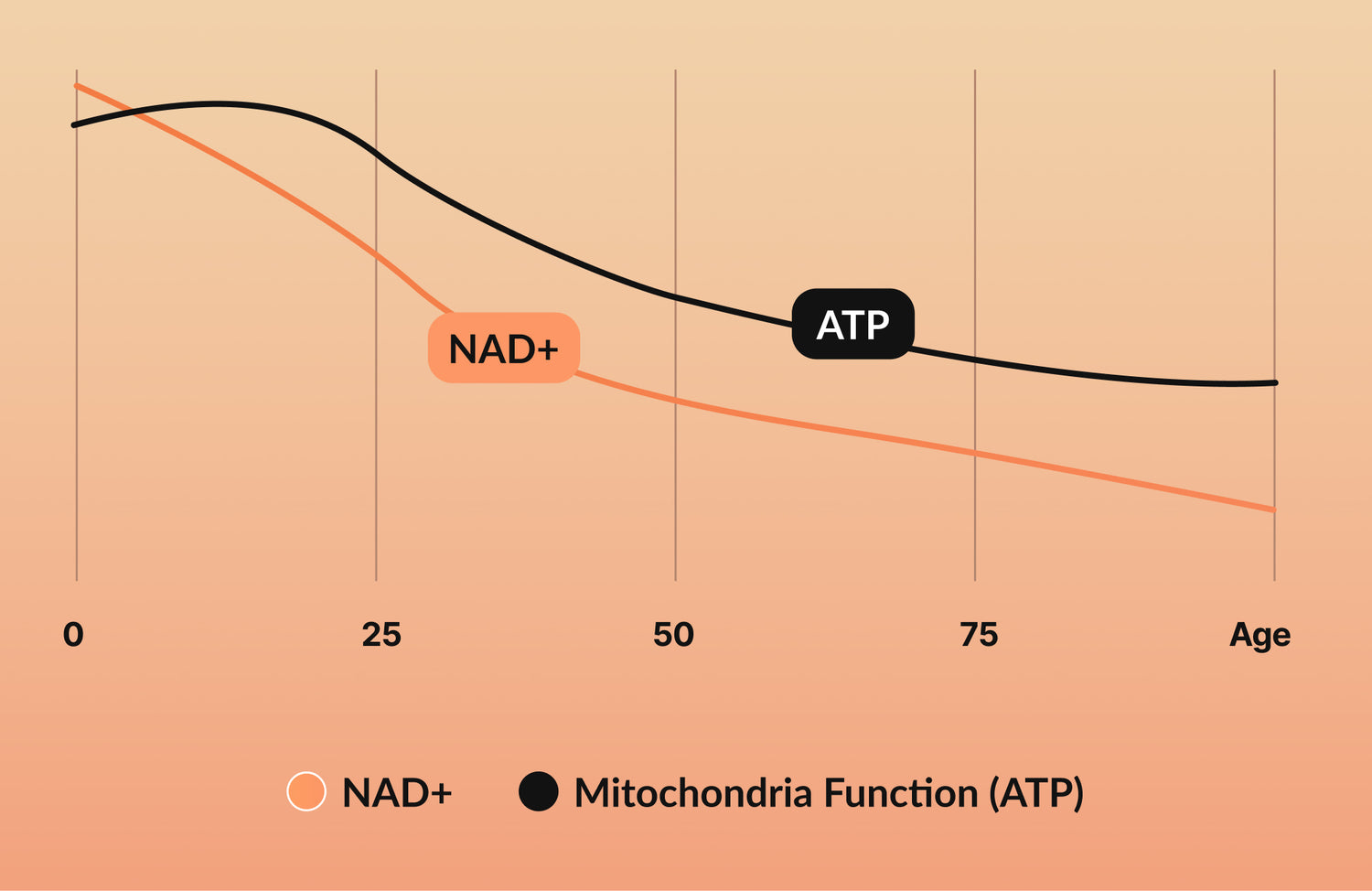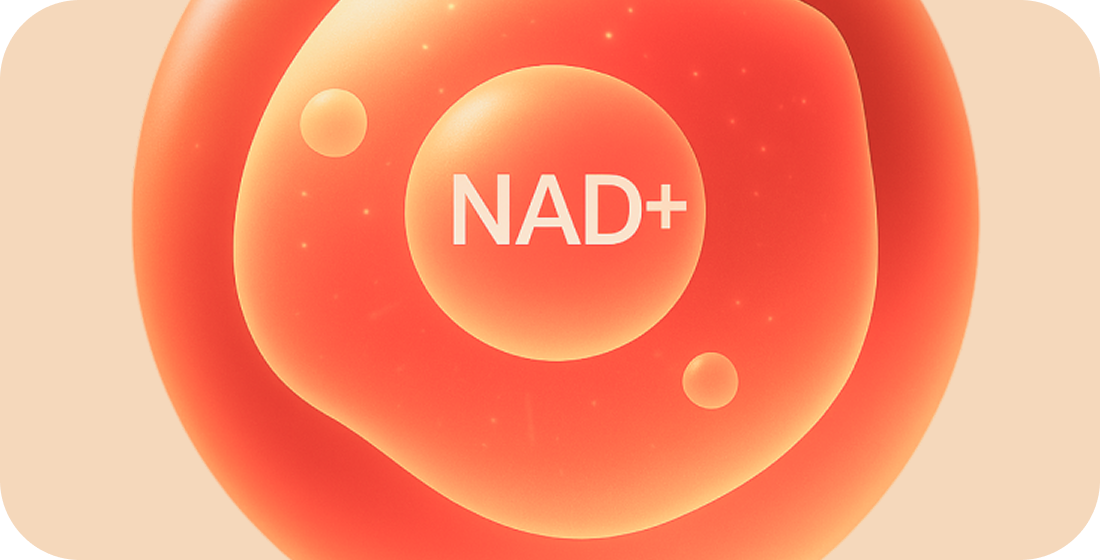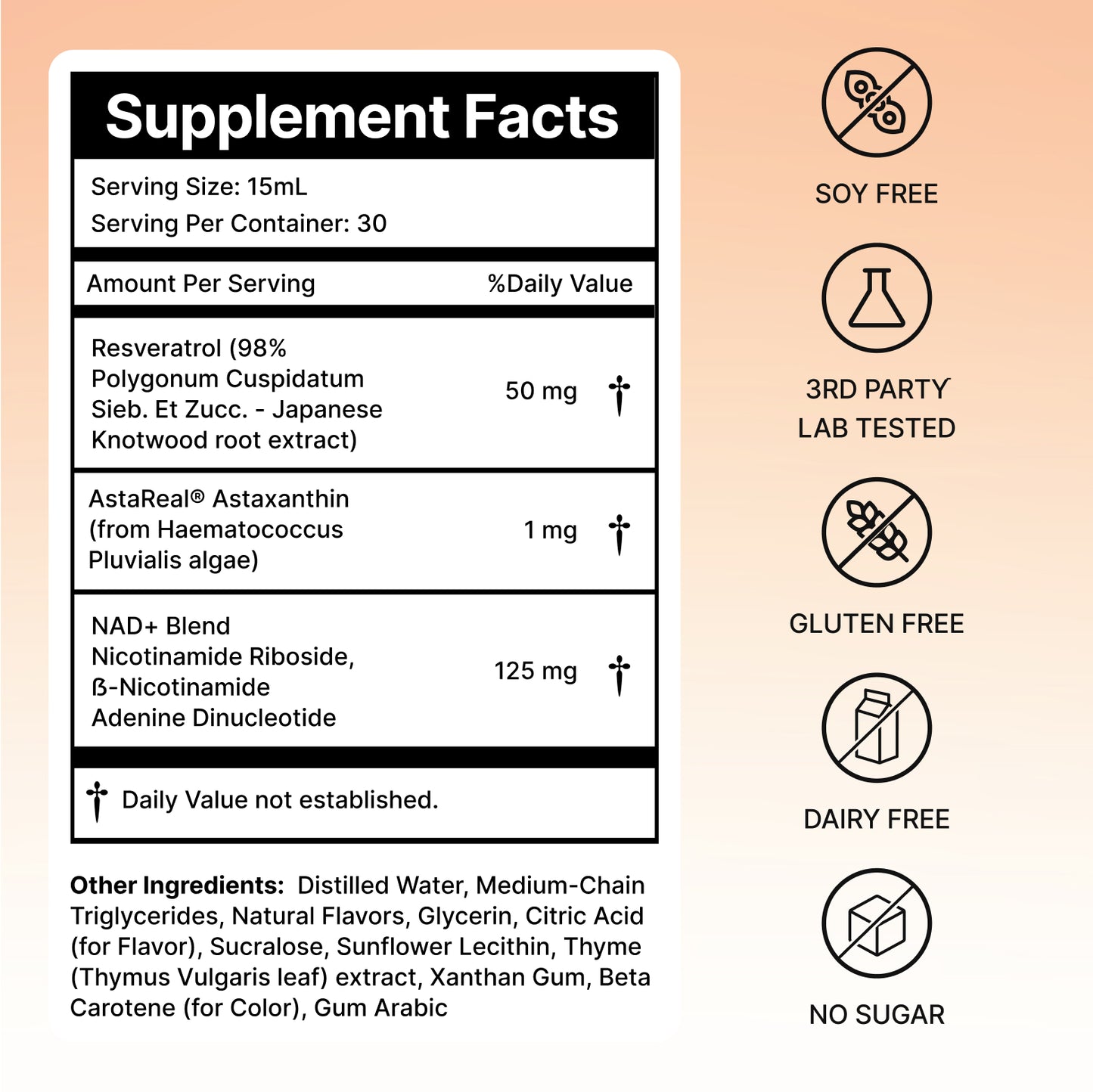
Whole-Body Health Starts at the Cellular Level
Our cells are the foundation of how we look, feel, and age. Over time, natural aging and everyday stressors gradually slow cellular function. Gleam’s NAD⁺ Complex is formulated to support healthy cellular foundations, help counter age-related decline, and promote whole-body vitality.

Cellular Health is the Key to Lasting Vitality
The human body is made up of 37.2 trillion cells, each acting as a microscopic engine that powers your entire system. These cells generate energy, repair damage, regulate inflammation, and maintain communication between organs. From metabolism and immune response to skin regeneration, mental clarity, and muscle strength—every process that keeps us healthy, vibrant, and resilient begins with well-functioning cells.

Modern Life and Aging Drain Your Cellular Foundations
As we move through life, subtle but significant changes begin to appear: energy dips, focus fades, and skin loses its glow. While we often link these changes to “just aging,” much of this decline is actually driven by modern living. Stress, poor diet, environmental toxins, and relentless schedules accelerate cellular deterioration, draining our bodies of the vitality they need to thrive.
Cellular health biomarkers can decline by more than 50% between the ages of 30 and 60
Scientific research has identified three primary root causes of Cellular Function Decline
-
NAD+ Depletion
NAD⁺ is a vital coenzyme essential for cellular energy production (ATP), metabolism, and DNA repair. Research shows that NAD⁺ levels begin to decline in your 20s dropping by up to 50% by your 40s and as much as 80% by your 70s. As NAD⁺ levels fall, cells become less efficient at producing energy and repairing damage, leading to fatigue, slower recovery, and reduced resilience.
-
Mitochondrial Dysfunction
Mitochondria, the powerhouses of your cells, generate ATP—the fuel that drives every biological function. Research shows mitochondrial ATP production declines by about 8–10% per decade after age 30. Reduced efficiency means lower energy output, more oxidative damage, and declines in muscle strength, brain function, and overall metabolic health. Critically, insufficient ATP accelerates aging and contributes to age-related decline.
-
Oxidative Stress & Inflammation
Your cells produce free radicals during energy production, normally neutralized by antioxidants. Modern factors like stress, pollution, UV radiation, smoking, and poor diet disrupt this balance. From your 30s, oxidative damage (ROS) rises ~15% per decade, overwhelming defenses and damaging cells and DNA. This accelerates aging (wrinkles, dull skin), fuels inflammation, and weakens the immune, cardiovascular, and nervous systems.
Cellular Decline is Impacting How We Look and Feel
By our late 20s, the natural aging process combined with modern lifestyle stressors begins to weaken the body’s ability to sustain healthy cellular function. This disruption impacts key processes like collagen production, energy generation, and cellular repair, setting off a chain reaction that shapes how we look, feel, and perform each day.
-
Skin Health
Levels of collagen in our body begin to decline in our 20s by about 5% per decade
Skin cells produce collagen, which provides structure, elasticity, and hydration. As cellular function diminishes, collagen production falls, resulting in less elastic, less radiant skin and the development of wrinkles and fine lines.
-
Muscle Power
Muscle power and mass decline steadily from your 20s, dropping 10% per decade
Muscle cells rely on efficient ATP production for strength and repair. As mitochondrial efficiency declines—with an approximate 10% drop per decade after age 30—muscles lose strength, recover more slowly, and endurance diminishes.
-
Cognitive Function
Cognitive Function declines by roughly 5–7% per decade starting in early adulthood.
Neurons require ample ATP for communication. As cellular energy declines, so does brain plasticity and processing speed. DSST scores (a proxy for cognitive speed and function) decrease with age, reflecting slower processing and reduced mental sharpness.
-
Immune System
Immune performance drops ~10% per decade starting in your 20s
The immune system’s strength depends on the rapid repair and regeneration of immune cells. Naïve T-cell counts, a marker of immune resilience, decline with age, reducing the body’s capacity to fend off infections.
-
Energy Levles
Energy levels decreases by about 8–10% per decade after age 30
VO₂ max is a key marker of mitochondrial efficiency, the powerhouse behind the body's cellular energy. As mitochondrial function declines with age, VO₂ max drops as well, resulting in lower energy, greater fatigue, and slower recovery.
Gleam NAD⁺ Complex Strengthens Your Cellular Health Foundation
Gleam NAD⁺ Complex is designed to support healthy cellular function by addressing the core drivers of cellular decline: NAD⁺ depletion, mitochondrial dysfunction, and oxidative stress. Gleam helps strengthen your cellular foundation while promoting sustained energy, resilience, and long-term vitality.

NAD+
Molecular structure
The Cellular Fuel
- Boosts NAD⁺ levels
- Cellular energy (ATP)
- Mitochondrial function
Gleam features Nicotinamide Riboside (NR), a clinically studied precursor to NAD⁺—a coenzyme essential for cellular energy production and mitochondrial function. As NAD⁺ levels naturally decline with age, NR helps replenish this vital molecule, supporting efficient energy metabolism, mitochondrial health, and the body’s natural processes of resilience.

Astaxanthin
Molecular structure
The Cellular Shield
- Powerful antioxidant
- DNA Integrity
- Skin health
Astaxanthin is one of nature’s most powerful antioxidants, shown in lab studies to be up to 6,000 times stronger than Vitamin C. Its unique structure allows it to integrate into cell membranes, where it helps protect mitochondria, DNA, and skin from oxidative stress caused by free radicals, pollution, and UV exposure. Research has shown it supports skin elasticity, muscle recovery, immune resilience, and cognitive performance—making it one of the most versatile antioxidants for whole-body health.

Resveratrol
Molecular structure
The Resilience Builder
- Supports healthy inflammation balance
- Cognitive function
- Cardiovascular health
Resveratrol is a polyphenol with antioxidant properties that help protect cells from oxidative stress. Clinical studies show it supports memory performance and promotes healthy cerebral blood flow—key factors for maintaining sharp cognitive function. Resveratrol also supports cardiovascular health by helping maintain endothelial function and healthy circulation.
Whole Body renewal Powered by NAD+
Experience whole-body renewal in a delicious daily ritual
-

Feel Better
Revitalize your body and mind*
Energy &
VitalityCognitive
FunctionMuscle
PerformanceImmune
Defenses -

Look Better
Restore your glow*
Skin Firmness &
ElasticityWrinkles &
Fine linesSkin
HydrationUV
Defense -

Fight Aging
Support cellular repair and longevity*
Mitochondrial
FunctionReduces
Oxidative stressDNA
FunctionInflammatory
Balance
Get Started with Gleam
Gleam Liquid NAD⁺
#1 Anti Aging Supplement
Skin Renewal
Steady Energy
Sharper Focus
Doctor Formulated for Anti-Aging & Longevity
Liposomal - Up to 10X Better Absorption
60 Days Money Back Guarantee




















